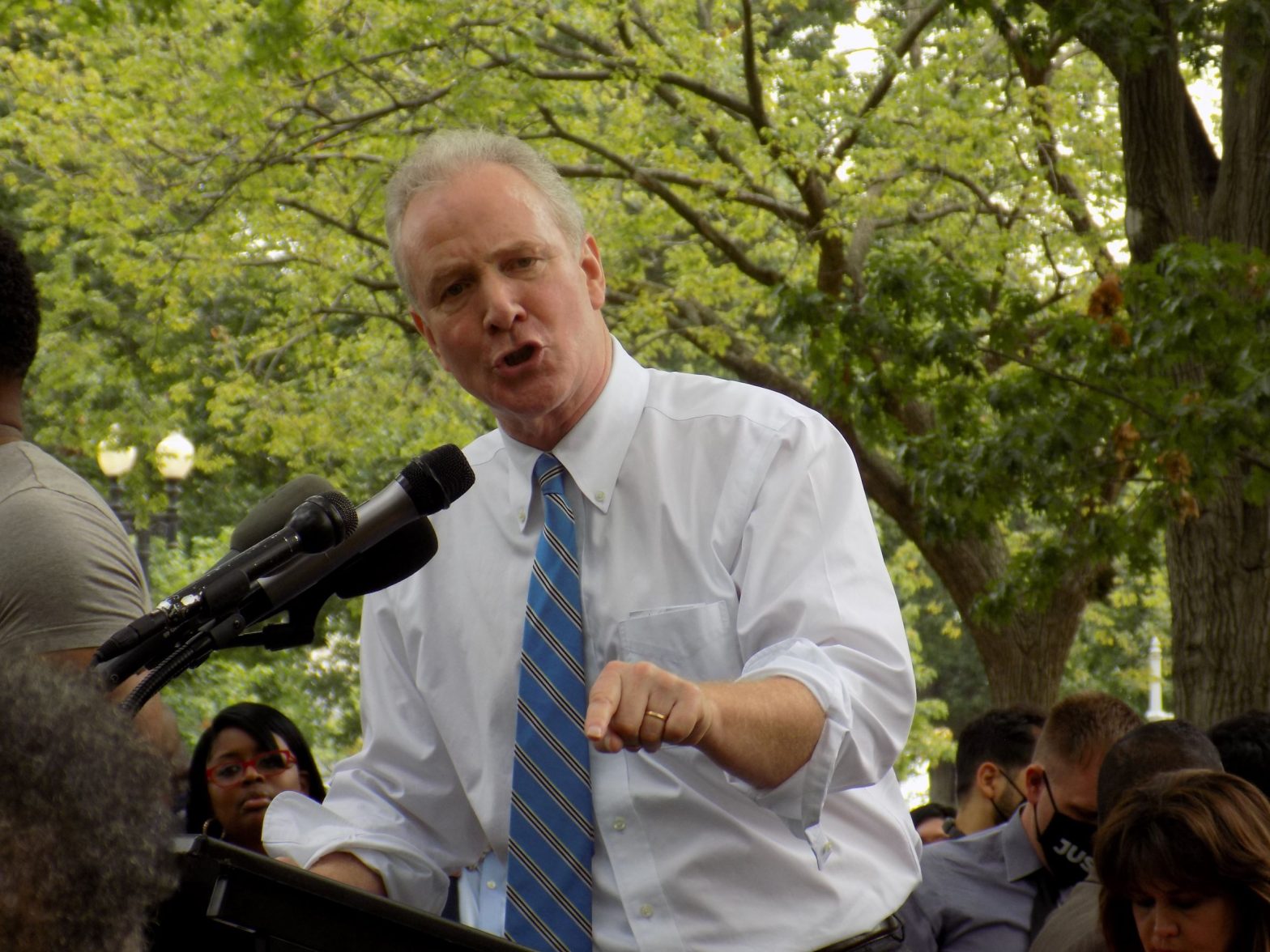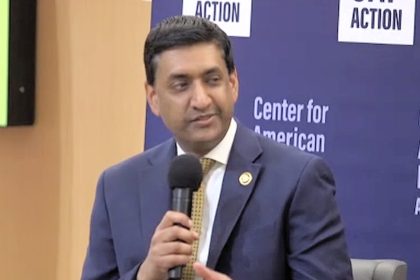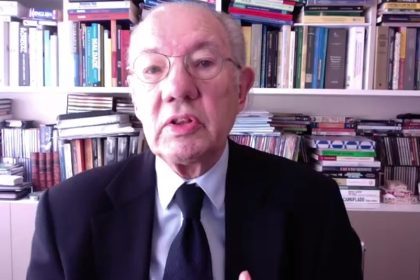Van Hollen Wants ‘Equity of the Tax System’ To Pay for Infrastructure, Reconciliation Spending

WASHINGTON — The Senate has passed both the $1.5 trillion bipartisan infrastructure bill and the framework of the $3.5 trillion budget reconciliation bill made up largely of potential investments in social programs and climate policy. While these massive budgetary items move through the House, Democrats continue to tout how these economic plans can boost households, and how they’ve found ways to pay for them.
“The better part of President Biden’s Build Back Better agenda is… the recognition that simply returning to the pre-pandemic status quo is not good enough,” Senator Chris Van Hollen, D-Md., told the public policy research and advocacy organization Center for American Progress. “That’s the agenda, and we need to make sure that we cover the costs of that.”
Van Hollen, a member of the Senate’s Budget and Appropriations committees, is advocating for focusing on the tax code to pay for infrastructure and reconciliation measures that work toward “growing a sustainable economy, reducing costs for families, and raising wages.”
He presented the CAP audience with a few specific options that he said could close tax loopholes for the wealthy and corporations, and use that revenue to pay for reconciliation spending.
“Increasing the equity of the tax system [is] politically and publicly popular,” Van Hollen said. “These are proposals that on their own have merit, but do generate revenue.”
Primarily, Van Hollen advocates for raising corporate and wealthy income taxes, undoing the GOP-led corporate tax cuts passed in 2017, to raise money for domestic programs. He believes these higher corporate and individual taxes could pay for most or all of the new spending, providing funding for what he believes is advantageous to the average American despite a recent report from the Joint Committee on Taxation that raising the corporate tax would adversely affect lower-wage earners.
He discussed extending middle class tax cuts, which are currently set to expire at the end of the year, but focused on changing the tax code for those who are “making money off money, not work,” with amendments designed to attack “intergenerational transition of wealth.”
To that end, he has put forward proposals to eliminate the “step-up basis,” or the readjustment of the value of an appreciated asset for tax purposes upon inheritance, as well as for taxing appreciation of the value of assets held in trust. (It must be noted that, in 1920, the U.S. Supreme Court concluded that, under the 16th Amendment, there must be some actual transfer of rights before Congress can tax appreciation as income.)
“Higher-wealth individuals not paying their fair share of taxes could generate $700 million over 10 years,” Van Hollen said. “I think there is strong support for a robust tax reform package.”
Additionally, he is calling for a polluter tax to be put in place, imposing fees on fossil fuel companies based on their carbon and pollution output.
“Those who have profited most from climate [destruction] should pay for it,” Van Hollen asserted, likening a pollution tax to the trust fund set up by Congress to handle emergency and hazardous waste sites needing long-term cleanup. “We did it for the Superfund, we should do it to create a Climate Fund… Those who have polluted the most [should] pay into a fund to help pay for cleanup and address climate change directly.”
“We’re looking at a lot of things that will help reduce costs as we invest more,” Van Hollen said, though he believes that taxing corporations and the wealthy are the key to paying for Biden’s economic agenda.
“As we measure the success of our economy, don’t just look at aggregate GDP issues,” he said, instead asking that prosperity be linked to generating opportunity for “getting good jobs, that make more, so people can save more, and save in areas that can help build longer-term wealth.
“A more inclusive economy can… make the pie greater and make it bigger faster. You can have an economy that grows rapidly but leaves most people behind, which is why I think we should have these alternative measures.
“The overriding goal is to create more opportunities for higher incomes and greater wealth in a more inclusive way.”
























